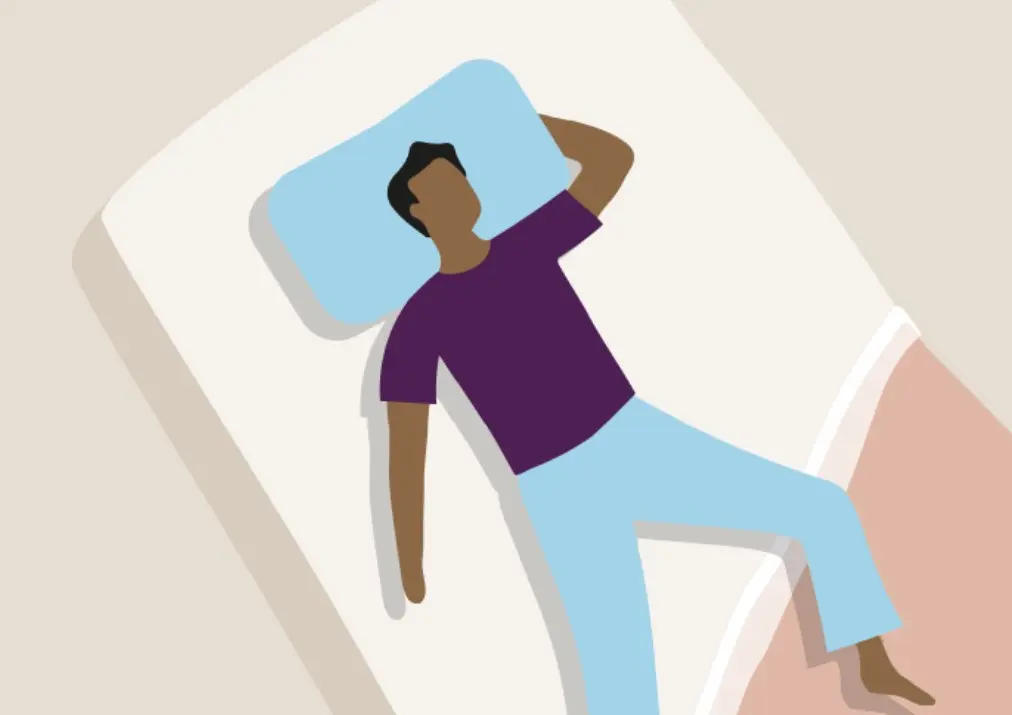Waking up feeling tired or irritable? Poor sleep posture might be to blame. While sleep duration matters, your sleeping position also impacts rest quality and daytime energy. Learn how sleep posture affects well-being, recognize signs of bad habits, and explore tips to wake up refreshed and energized.
Why Sleep Posture Matters
Your sleep position does far more than determine how cozy you feel at night. The way you sleep can directly affect:
- Spinal alignment: Incorrect posture can put undue stress on your spine, leading to stiffness, pain, and long-term issues.
- Breathing: Sleep posture influences airflow during the night. A poor position may obstruct breathing, causing disruptions like snoring or even sleep apnea.
- Muscle recovery: Misalignment during sleep prevents muscles from relaxing and recovering effectively, leaving you sore and fatigued the next day.
- Circulation: Certain postures can impede blood flow to key areas, leading to numbness, tingling, or restlessness during the night.
Your spine, joints, and muscles work best when your body is in a neutral and supported position. Anything less can result in restless nights and drained mornings.
The Daytime Consequences of Poor Sleep Posture
The long-term effects of suboptimal sleep posture extend beyond discomfort. Here’s how it contributes to your diminished daytime energy:
1. Chronic Muscle Fatigue and Pain
Poor posture puts pressure on the neck, shoulders, and back, causing these muscle groups to overcompensate. This prolonged strain often leads to stiffness, soreness, and chronic fatigue that can persist throughout the day. If you’ve woken up with an aching neck or back, there’s a strong chance your sleep posture is to blame.
2. Interrupted Sleep Cycles
Good sleep is about more than just staying in bed for eight hours; uninterrupted sleep cycles are essential for recovery. Poor posture, such as sleeping on your stomach or in a tightly curled position, can cause discomfort that wakes you up throughout the night. Even minor sleep interruptions lead to poor-quality rest, leaving you groggy and drained.
3. Reduced Oxygen Intake
Sleeping in positions that compress your chest or block your airway can reduce the efficiency of your breathing. Nighttime breathing issues can lead to low blood oxygen levels, preventing your body from fully replenishing its energy reserves. Insufficient oxygen ultimately translates to sluggish mornings and decreased alertness.
4. Headaches and Migraines
Have you woken up with a headache that lingers through the day? Sleeping in positions that misalign the neck can strain the cervical spine, leading to tension headaches or migraines. Poor blood flow to the head during sleep can exacerbate these issues, driving down energy and productivity.
5. Digestive Disruption
Your digestive system keeps working even while you sleep. However, sleeping on your back or right side after eating a heavy meal can cause acid reflux or indigestion that interrupts rest. Poor digestion at night leaves you feeling fatigued and sluggish in the morning.
Signs That Your Sleep Posture Needs Improvement
If you’ve experienced any of the following, your sleep posture could use some attention:
- You wake up with neck or back pain.
- You feel restless and toss and turn frequently.
- Morning headaches or jaw pain are common.
- You have tingling or numbness in your arms and hands upon waking.
- Despite sleeping for adequate hours, you still feel fatigued.
Identifying and addressing these symptoms can dramatically improve your sleep quality and overall energy levels.
Tips for Better Sleep Posture and Energy
The good news is that improving your sleep posture doesn’t require drastic changes. Incorporate these tips to reclaim your energy:
1. Choose the Right Pillow
Your pillow should support your head and neck while keeping your spine aligned. For side-sleepers, a thicker pillow is ideal to fill the gap between your head and shoulder. Back-sleepers should look for a medium-firm pillow that supports the neck’s natural curve.
2. Invest in a Supportive Mattress
An old or unsupportive mattress can negatively impact spinal alignment. Aim for a medium-firm mattress that provides both comfort and support. A plush twin mattress can be a great option for smaller spaces, offering the perfect balance of softness and support. Memory foam options also contour to your body and help maintain optimal posture.
3. Adopt Healthier Sleep Positions
Side and back sleeping are widely regarded as the healthiest positions. If you’re a stomach sleeper, consider transitioning to your side to alleviate stress on the neck and lower back. Use a body pillow to make the shift more comfortable.
4. Use Pillows for Added Support
Add pillows strategically for improved posture:
- Between your knees: Side-sleepers can place a pillow between the knees to align the hips and reduce lower back strain.
- Under your knees: Back-sleepers can place a pillow under the knees to maintain the spine’s natural curve and relieve lower back pressure.
5. Stretch Before Bed
Gentle stretches before bed can loosen tight muscles and reduce tension caused by poor posture during the day. Focus on areas prone to stiffness, such as your neck, shoulders, and lower back.
6. Monitor Your Daytime Posture
Daily posture directly impacts how you feel in bed. Practice sitting and standing with your head, neck, and spine in alignment throughout the day to promote better posture at night.
Conclusion
Your sleep posture affects your energy, health, and productivity. Poor alignment can lead to pain, restless nights, and discomfort. Simple changes like using the right pillow, stretching, and improving your sleep position can help you wake up refreshed.
Also Read-Harnessing Technology for Efficient Home Management


